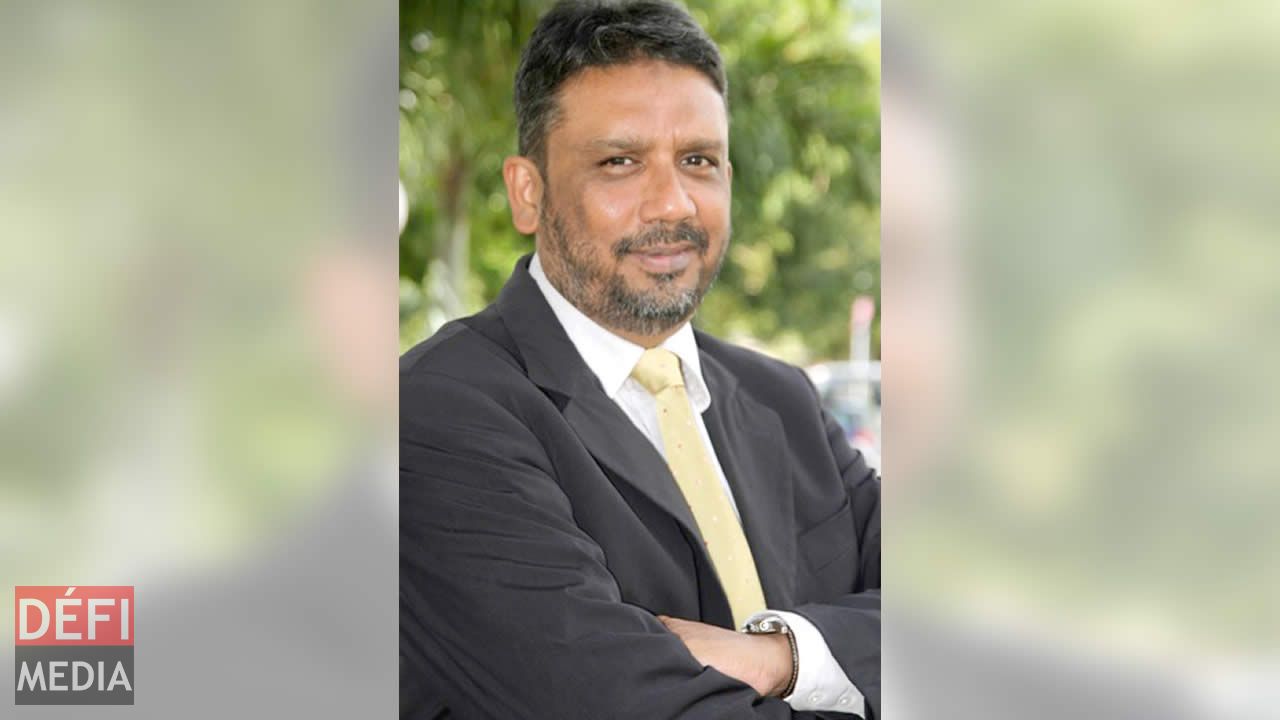
Currently, the offshore companies are still doing well, underlines Partner in Advisory and Risk Management, Irshad Mallam-Hassam. With over 25 years of experience in the consulting, finance and management sector, Irshad Mallam-Hassam analyses the different aspects of financial issues affecting the climate of Mauritius. He believes that Mauritius is facing tough competition in this sector.
Publicité
How is the financial sector performing?
The financial sector comprises many segments namely banking, insurance, global business, leasing, micro-finance, to name a few. Some are ‘Bank of Mauritius’ regulated whilst others are ‘FSC’ regulated. To a large extent, they are all quite inter-connected with Offshore management companies acting as a very powerful point of contact with foreign companies and individuals and is a major earner of foreign currencies which has been keeping the Mauritian economy going. In 2017, the financial services sector contributed up to 11.8% of the GDP and provided direct employment to some 7,400 people. If indirect employment is taken into account, the importance of the Financial sector is truly considerable. For the moment, offshore companies are still doing well but there’s a lot of uncertainties from the part of offshore professionals in light of the global challenges and review of the existing model. Many see an erosion of the attractiveness of the Mauritian offshore platform.
Will the introduction of the Finance Bill bring major changes in our finance sector?
The Finance Bill has now been enacted and bring a number of changes with respect to the existing regulatory requirements, new obligations to be fulfilled for structuring of vehicles, changes to the taxation regime, changes to the banking and finance legal regime as well as reinforcement of the AML/CFT compliance.
The Finance Act touches the core of the Global business companies though a major shake-up of the model that has been around for many years. Moving forward, there will be only one category of Global Companies which will be licensed as ‘Global Business Licence’. The GBL 2 will be abolished and the FSC will cease to issue the GBL2 licence as from January 2019, subject to the grandfathering provisions.
The concept of ‘Authorised Company’ has been introduced. An ‘Authorised Company’ is a corporation which proposes to conduct or conducts business principally outside Mauritius and which has its place of effective management outside Mauritius and of which the shareholding is held or controlled by a non-citizen of Mauritius. The application for an ‘Authorised Company’ will be made to the FSC, through a management company.
In addition, the taxation of companies operating in the global business sector has been reviewed. The Deemed Foreign Tax Credit (“DFTC”) regime available to entities holding a Category 1 Global Business Licence will be abolished as from 1st January 2019. Instead, a “partial exemption” regime will be introduced. The 80% partial exemption will apply to foreign source dividend, interest as well as profit attributable to a permanent establishment which a resident company has in a foreign country, income derived by a Collective Investment Scheme, Closed-end fund, CIS manager, CIS administrator, investment adviser or assets manager licensed or approved by the FSC and income derived by companies engaged in ship and aircraft leasing.
In the banking sector, the major change relates to the abolishment of Segments A and B and review of the taxation regime whereby banks will be taxed at 5% for the first Rs 1.5bn and thereafter at 15%.
For the moment, offshore companies are still doing well but there’s a lot of uncertainties from the part of offshore professionals in light of the global challenges and review of the existing model."
Mauritius continues to face negative comments on the international scene with regards to the financial sector. What should be done to uphold our good image?
The Mauritius International Financial Centre has suffered for long of a number of criticisms at international level. To improve the good image of the financial services sector, the government has already started to take the right measures. It has taken bold measures to reform our offshore financial sector and restore our reputation. The EDB should proactively market our jurisdiction as a clean, transparent and trusted one where there is substance, compliance and certainty. A clear marketing strategy should be devised and which should be more sustained.
The Blueprint on which the Government has engaged on should provide a clear road map for the promotion of the sector. Once this is defined and finalised, compelling and impactful messages for the branding campaign should be crafted and promoted.
With the phasing out of GBC1s and GBC2s in the near future, will this affect our global sector?
We currently have around 12,000 GBC1 and 10,500 GBC2. With the GBC2 being reviewed, there will certainly be an impact on those entities. Some may convert into GBL or domestic company but there will be others that would probably not be able to continue and will look at other jurisdictions where they can migrate.
The GBC1 will have to demonstrate further substance moving forward and if they are able to fill the substance criteria, they will continue to operate in Mauritius. This will have a positive impact on the economy, as those entities may employ more people, have more expenses incurred in Mauritius and rent office spaces.
It is also good to highlight that besides the GBC1 and GBC2, there are other options that have been offered, like the Authorised Company and also more flexibility allowed under a Domestic company.
Is Mauritius facing stiff competition from other countries in financial services?
Definitely so. By definition, global finance is global by nature and Mauritius face competition from many jurisdictions. However, Mauritius has its own competitive edge. For instance, it is now considered as a mature IFC, a politically stable country, which possesses competent staff up to a certain level, and at a more or less competitive cost.
But IFCs also have some specialisations in them, some countries are predominantly used for investment in certain parts of the world, for instance, the Bahamas, Jersey, Delaware. Mauritius has thus a differentiating factor when it comes to Africa and India. But nothing remains in status quo forever.
Can we expect more turmoil on the financial markets in the not too distant future?
If by turmoil in financial markets you are referring to global instability in trade, then it is apparent that there will be such turmoil in the predictable future. I believe that there are some strong forces at play right now. US and China are at loggerheads, the Middle East is unstable and this is further fueled by the economic sanctions on Iran. The US has started a spat with Turkey and taken a rigid stance with his former historic allies, such as the EU and Canada. All this only contribute to an overall volatility of financial markets although the US seems to continue to be doing quite well within this unstable global backdrop but a slowdown in the future cannot be ignored.
But Africa is increasingly seen as the last frontier and Mauritius has potentially a strong card to play here, provided we play it well. I believe we can still do a better job in our positioning vis-à-vis the African continent.
I would put high on my list the absence of awareness of the impact of the degradation of our environment on future generations. We are reaching a tipping point whereby our impact on our environment will become irreversible."
Many entrepreneurs and foreign investors complain that banks take too long to open company bank accounts. What is your take on that?
The banking sector is a heavily regulated sector with stringent conditions to adhere to, which are posed by the BOM. Failing to conform to these guidelines can result in heavy penalties and other consequences for them. Thus, there is considerable prudence when it comes to the KYC (Know Your Customer) part of opening a new bank account. But there’s equally a perception that they overplay this and unduly penalize the smaller, honest and regular business man.
Whilst compliance should be clearly adhered to, however this should not be detrimental to doing business. Unfortunately, these days, compliance at the bank level has become so heavy that it gives the impression that banks don’t want to do business.
What role should a bank play in the economic development of the country?
Banks are a crucial link in the business lives of companies and the economic development of the country. But let us not forget that banks are profit driven organisations that seek to maximise their profits and minimise their risks. They will generally look at a business and assess the risks involved in financing a new venture or to extend their financial assistance. If they are not convinced of the possibility of success, they can cut the slack and possibly doom the company.
Given that they are often the only source of funds in Mauritius, their role and the consequences of their actions on smaller companies are far-reaching. They do not often take into consideration their social responsibilities in maintaining certain businesses alive. Everybody has an opinion on this issue and it is unfortunately an ongoing debate.
This is where turnaround and restructuring specialists play a role. Besides, banks are essentially debt finance providers and other players in the mezzanine finance layers complement and take it forward when banks decline to pursue the matter further.
Otherwise, you have been recently nominated as the president of Rotary of Quatre Bornes. What will be your priorities in solving the various societal issues?
Being part of the Rotary is my personal contribution to society. This year the Rotary Club of Quatre Bornes shall endeavor to preserve the environment, create awareness about the damages caused by diabetes, combat drugs through sensitization campaigns and encourage education.
What is, in your opinion, the greatest social ill we need to address quickly?
I would put high on my list the absence of awareness of the impact of the degradation of our environment on future generations. We are reaching a tipping point whereby our impact on our environment will become irreversible. There is a staggering figure of 500 billion plastics bottles produced every year globally, with each plastic bottle takes around 450 years to be degraded. Besides, temperature rise will displace entire populations with all sorts of consequences and predicaments for humanity.

Notre service WhatsApp. Vous êtes témoins d`un événement d`actualité ou d`une scène insolite? Envoyez-nous vos photos ou vidéos sur le 5 259 82 00 !
















![[INFO SOIRÉE] : « monn dormi ek mo tiket a kote mwa » raconte Jean Sandy](https://defimedia.info/sites/default/files/styles/square_thumbnail/public/thumbnail_250424.jpg?itok=vS_D7IQd)




